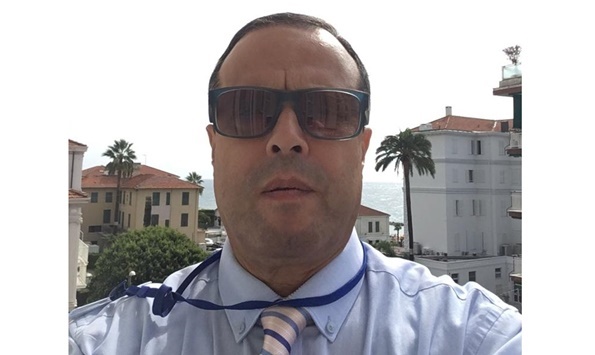The Ministry of Culture organised an open dialogue about the Doha Theater Festival (DTF), which concluded its activities recently.
Dr Marzouq Bashir bin Marzouq, professor of drama theories at the Community College, and Jordanian critic Rashid Malhas spoke. It was attended by Abdul Rahman al-Dulaimi, director of the Department of Culture and Arts, and Abdul Rahim al-Siddiqi, director of the Center for Social Affairs, and a group of theatre artists who participated in the festival’s activities.
Dr Marzouk Bashir discussed the role of science and objective artistic criticism in evaluating theatrical movement. He pointed out that systematic scientific analysis is almost missing in the Qatari theatre, which extends to fifty years. He also pointed out that lack of an objective scientific method for evaluating theatrical movement raises an important question about the achievements over these years. Were they real, or just individual achievements?
He explained that theatre in general, and since its inception, has been based on a scientific methodology, stressing the importance of artistic talent, “but this does not mean ignoring the role of science.”
He said that “the first scientific theory of drama was developed three thousand years ago. It continued to develop throughout the ages, until art schools appeared and thousands of universities were established all over the world, including our region. There is the Institute of Dramatic Arts in Kuwait, and the Sharjah Academy of Arts.” He expressed his hope that scientific theory and methodology would prevail in the Qatari theatrical movement.
Bashir pointed out that the art scene lacks a correct critical movement, explaining that over the years there has been no objective analytical criticism, especially in the Qatari press. Confirming that this absence harms the theatrical movement, as many playwrights built their artistic existence on illusion, not truth. He said that at the academic level there are no universities that teach dramatic artistic criticism, and that the literary criticism that is studied at Qatar University is different from applied artistic criticism.
Jordanian critic Rashid Malhas said the Arab theatre, not just Qatari theatre, suffers from a text crisis. It is not the lack of texts but also their quality. Pointing out that during the DTF, a group of local texts were identified, the levels of which varied between excellent and acceptable. He described the Qatari theatre as “fine and in very good health and needing some vitamins to become excellent.”
He also stressed the need to enhance the capabilities of playwrights, motivate writers and poets to write for the theatre, and to organise lectures and workshops related to playwriting, and to supply the theatre library with translations of international texts.
Malhas called for opening dialogues between Qatari directors and theatre groups that would lead to the implementation of at least one work annually that unites everyone. Plus other dialogues and workshops between them and directors from Arab and foreign countries that might lead to applied experimental performances. This should go together with holding courses in sound and theatrical movement and musical appreciation for professional, novice and amateur actors, to promote their performing skills.
He also stressed the need to work on the sustainability of the theatrical movement by implementing performances throughout the year that the theatre groups take turns performing.
Qatar
Call for more Qatari theatre shows, objective criticism
Qatari theater intellectuals suffer from lack of criticism, need continuous performances


